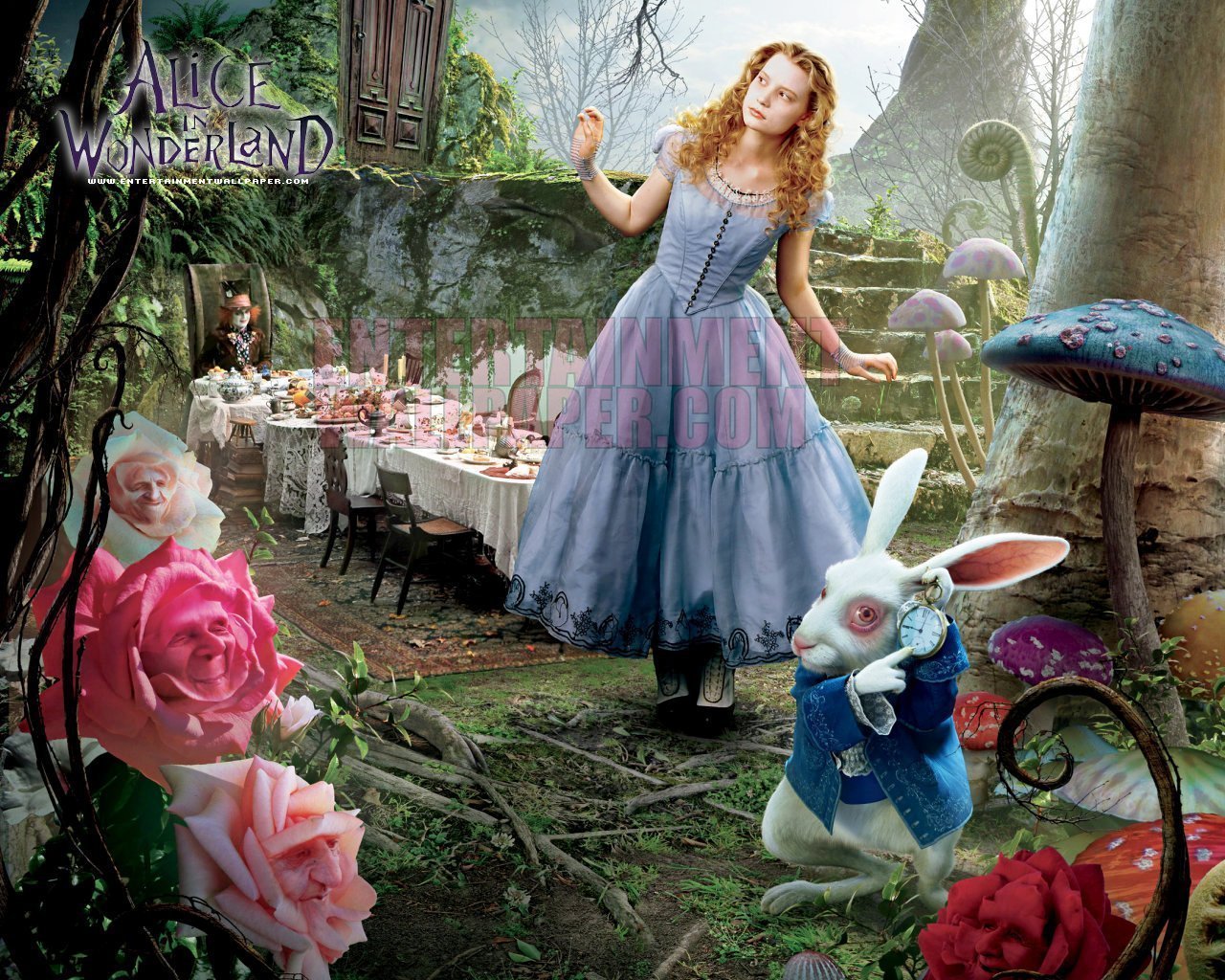Sometimes, bits and pieces of information float around, and people wonder what the full picture might be. It's a natural human tendency, really, to want to connect the dots when something sparks our interest. Whether it's a whisper, a casual mention, or a phrase that just pops up, our minds often start to piece things together, trying to figure out the whole story behind it all. This kind of curiosity, you know, is a big part of how we learn and how we make sense of the world around us, especially when we're dealing with things that feel a little bit mysterious or incomplete.
In our connected world, information, as a matter of fact, travels incredibly fast, sometimes in ways that can feel a little bit overwhelming. The sheer volume of things we hear and see can make it tough to sort through it all, leaving us to ponder the true narrative behind a particular name or a specific event. When a phrase like "alice rosenblum full leak" comes up, it certainly gets people thinking, prompting a natural desire to understand what might be behind such a statement, even if it's just a hypothetical idea or a rumor floating about.
It's interesting, isn't it, how we try to piece together public information, almost like putting together a puzzle, to get a better sense of a person or a situation. We aim to understand, naturally, without jumping to conclusions or making things up. This process of gathering and considering what's available helps us form our own impressions, allowing us to think about how different bits of data might fit together, and what they could possibly mean for anyone involved, especially when a name like Alice Rosenblum is mentioned in connection with some sort of information becoming public.
- Where Is Tylar Witt Today
- Outlander Red Dress
- Kyle From Love Is Blind
- Miami Dolphins Head Coaches
- Gulf Shores Homes
Getting to Know Alice Rosenblum - A Glimpse into Public Records
What Do We Really Know About Alice Rosenblum?
How Does Information Travel - The Digital Footprint of an "alice rosenblum full leak"?
The Internet's Echo Chamber - Bits and Pieces of Knowledge
Unpacking Digital Content - From Games to Insights
What is a Galgame, Anyway?
The Art of Finding Facts - Beyond the Surface
How Can We Verify Information About an "alice rosenblum full leak"?
Getting to Know Alice Rosenblum - A Glimpse into Public Records
When we talk about someone like Alice Rosenblum, or anyone whose name might become a topic of discussion, a common first thought is to try and learn more about them. People often want to know a person's story, their background, and what makes them who they are. This natural desire for personal information, you know, drives a lot of online searches and discussions. It's almost as if we're trying to build a picture in our minds, even if we only have a few scattered pieces to work with, to get a sense of the individual behind the name.
Public records and various online mentions can sometimes offer a glimpse into a person's life. Think about how many people have a public presence, maybe through professional profiles, social media, or even mentions in news articles. These bits of information, you know, start to form a sort of public persona. It's not always a complete picture, of course, but it gives us a starting point for understanding who someone might be, or what they might be involved with, which is quite interesting.
- Sadhguru And Isha Foundation
- Sadhguru Merchandise
- Hayden Christensen Emo
- President Nikki Haley
- Charli Damelio Surgery
For someone like Alice Rosenblum, if we were to gather information, we'd typically look for things that are already out there for the public to see. This could mean searching for any professional associations she might have, any public statements she's made, or perhaps even creative works she's been a part of. The idea is to collect what's openly available, without prying into private matters, and then try to make sense of it all, so to speak, in a respectful way.
What Do We Really Know About Alice Rosenblum?
It's important to be really clear about something: the information provided for this discussion doesn't actually contain specific details about a person named Alice Rosenblum or any particular event involving her. So, while we can talk about the general idea of public profiles and how information might surface, we can't, in fact, share any factual biographical data about her here. This is because we don't want to make things up or assume anything that isn't directly supported by the text we're working from, which is a key principle.
However, we can talk about the *types* of things people typically look for when trying to understand someone's public identity. This often includes their professional background, any notable achievements, or perhaps connections to various communities or industries. When people search for a name, they're usually hoping to find a clear, straightforward account of that person's life and work, and that's usually what they expect to find, so to speak.
To illustrate what a public profile might contain, even without specific details for Alice Rosenblum, consider the following general categories. These are the kinds of data points that, you know, often form the basis of how we come to know about public figures, or even just people who have a presence online. It helps to organize our thoughts about what kind of information is usually considered part of someone's public record, which is quite useful.
| Category | Typical Public Information |
| Name | Alice Rosenblum (as the subject of discussion) |
| Professional Role | General area of work or industry (e.g., "electronic games professional" or "content creator"), if publicly known. |
| Public Contributions | Any published works, public projects, or community involvement that is openly accessible. |
| Affiliations | Organizations or groups someone might be publicly connected with. |
| Online Presence | Public profiles, platforms where content is shared (e.g., like a Bilibili UP, or a forum contributor). |
This table, you know, is just a way to show the kinds of details that *would* be relevant if we had them. It helps us think about how we categorize information about individuals in a public setting. It's a structure for organizing thoughts, basically, rather than a source of new facts about this particular person. We're just outlining what we'd look for, in a way, if we were trying to build a public profile.
How Does Information Travel - The Digital Footprint of an "alice rosenblum full leak"?
The way information moves around these days is quite fascinating, isn't it? It's not just about traditional news sources anymore; bits of data, opinions, and even personal insights spread through countless channels. This flow of information creates what we might call a "digital footprint" for individuals and topics alike. When a phrase like "alice rosenblum full leak" gets mentioned, it immediately brings to mind this idea of information, perhaps private in nature, somehow becoming public, which is a rather significant thing to consider.
Think about how quickly things can go from a private conversation to a widely discussed topic online. Platforms like Zhihu, for example, serve as places where people share knowledge, experiences, and perspectives, and sometimes, these discussions can take on a life of their own. This rapid sharing, you know, is a defining feature of our current digital landscape. It means that anything, from a simple question to a complex piece of information, can spread far and wide, virtually in an instant, which is quite remarkable.
The digital trail someone leaves behind, whether intentionally or not, can be quite extensive. This includes things like their online posts, comments, or even mentions by others. These pieces, so to speak, form a collective picture that can be accessed by many. It's a bit like leaving breadcrumbs, where each interaction or piece of shared content adds to the overall path, and that path can be followed by anyone with an interest, which is really something to think about.
The Internet's Echo Chamber - Bits and Pieces of Knowledge
The internet, in some respects, can act like a giant echo chamber, where information, once introduced, tends to bounce around and amplify. This means that even small pieces of knowledge or a single mention can get repeated and discussed by many people, making it seem much larger than it might originally have been. It's a powerful effect, really, and it's something that anyone sharing or consuming information online needs to be aware of, you know, because it shapes how we perceive things.
Consider how different bits of information, even seemingly unrelated ones, can sometimes connect. For instance, a discussion about how to find book information using an ISBN, or how input methods work on a computer, might seem distinct. Yet, they all relate to the broader theme of accessing and processing data. When we talk about something like an "alice rosenblum full leak," these seemingly disparate pieces of knowledge might, in a way, contribute to the larger narrative or discussion surrounding the subject, which is quite interesting to consider.
The collective wisdom, or sometimes the collective speculation, that builds up online is a fascinating phenomenon. People contribute their own insights, ask questions, and share what they've found, and this process, you know, creates a rich, if sometimes chaotic, tapestry of information. It's a constant flow, with new details emerging and old ones being re-examined, all contributing to the general buzz around a topic, which is quite a dynamic process, actually.
Unpacking Digital Content - From Games to Insights
Digital content comes in so many forms, doesn't it? From entertainment like games to informative videos and articles, our screens are filled with a wide array of things to engage with. Companies like AliceSoft, for instance, are known for creating specific kinds of digital experiences, like erogames, with new versions or translations, such as "Evil Night Approaches," becoming available on platforms like Steam. This shows how diverse the world of digital creation truly is, and how it continues to grow, which is pretty amazing.
The creation and distribution of digital content often involve a lot of moving parts, including development teams, marketing efforts, and platforms for release. When something new comes out, whether it's a game or a piece of software, there's usually a lot of discussion around it, with fans and critics sharing their thoughts. This public conversation, you know, adds another layer to the information surrounding the content itself, creating a sort of ongoing dialogue that shapes its reception.
Beyond entertainment, digital content also serves as a primary way we share and gain insights. Think about how many people turn to online videos, like those from a Bilibili UP such as "Boston Round Face," to learn new things or understand complex topics. These creators, in a way, become sources of information, packaging ideas into digestible formats for a wide audience. It's a very effective way to spread knowledge, and it shows how much we rely on digital means for our daily dose of learning, which is quite clear.
What is a Galgame, Anyway?
You might hear terms like "galgame" and wonder what they mean, especially if you're not familiar with specific types of digital entertainment. In many parts of the world where Chinese is spoken, "galgame" often gets used to mean something similar to "bishōjo games." These are, in essence, a kind of Japanese electronic game where players can interact with animated female characters. It's a particular style of game, you know, that focuses on narrative and character interaction, which is a bit different from other game types.
These games often involve a lot of reading, as the story unfolds through text, combined with visuals and sometimes voice acting. They're a form of interactive storytelling, really, where the player's choices can influence the direction of the plot and the relationships with the characters. It's a very specific niche in the gaming world, but one that has a dedicated following, and it represents a unique way that digital content can be created and consumed, which is quite interesting to see.
Understanding these specific terms helps us appreciate the wide array of digital creations out there. Just as we might discuss the differences between a book and its movie adaptation, like "Alice Doesn't Live Here Anymore," knowing the specifics of "galgame" helps us understand a particular genre. It's all part of the broader conversation about digital media and how it's categorized and consumed, which is pretty important for anyone interested in the topic, so to speak.
The Art of Finding Facts - Beyond the Surface
In a world brimming with information, the ability to find and assess facts is, you know, a truly valuable skill. It's not always about just taking what we hear at face value; sometimes, we need to dig a little deeper to get to the truth. This process of seeking out reliable information is, in a way, an art form in itself, requiring a certain amount of patience and a good eye for detail. It's about looking beyond the first thing you see and asking questions, which is a very useful habit to cultivate.
Consider how we might go about finding details for something as seemingly simple as a book's publication information. You might find that the ISBN, that unique number on almost every book's inside cover, can actually be a really easy way to locate publisher names and places of publication. This is a practical example of how a small piece of data can unlock a lot more information, and it shows that there are often straightforward methods for getting the facts we need, which is quite helpful.
This approach applies to many areas, not just books. Whether it's trying to understand why certain English names are so common, or why a particular phrase like "THX" is preferred over "TKS" in certain contexts, the method is similar: look for reliable sources, consider the origin of the information, and try to understand the context. It's about building a solid foundation of knowledge, piece by piece, which is very important for making sense of the world, actually.
How Can We Verify Information About an "alice rosenblum full leak"?
When a phrase like "alice rosenblum full leak" comes up, or any mention of sensitive information, the immediate question should be: how can we be sure this is accurate? Verifying information is, in some respects, the most important step in understanding any public discussion, especially when it involves someone's personal life or reputation. It's about not just accepting what's presented, but rather, taking steps to confirm its validity, which is a critical practice for everyone.
The first thing to consider, you know, is the source of the information. Is it coming from a reputable news outlet, a verified personal account, or perhaps an anonymous post on a forum? The origin of the data often tells us a lot about its potential reliability. For instance, a well-established platform like Zhihu, which aims to share knowledge, might have different levels of verification for its content compared to a casual social media post, which is a key difference.
Next, look for corroborating evidence. Does the information appear in multiple, independent sources? Do different accounts of the same event align? If something is truly a "full leak," one might expect to see consistent details across various platforms, or perhaps official statements that acknowledge or refute the information. Without such supporting evidence, any claims, you know, should be treated with a healthy dose of skepticism, which is just good practice, really.
Finally, remember that context matters a lot. Sometimes, a piece of information might be true in one specific situation but misleading when taken out of its original setting. For instance, a discussion about GPU rental costs might be accurate for a particular service at a certain time, but not universally. So, when evaluating anything related to an "alice rosenblum full leak," or any other piece of public information, it's always helpful to consider the bigger picture and how different elements fit together, which is quite a thoughtful way to approach things.



